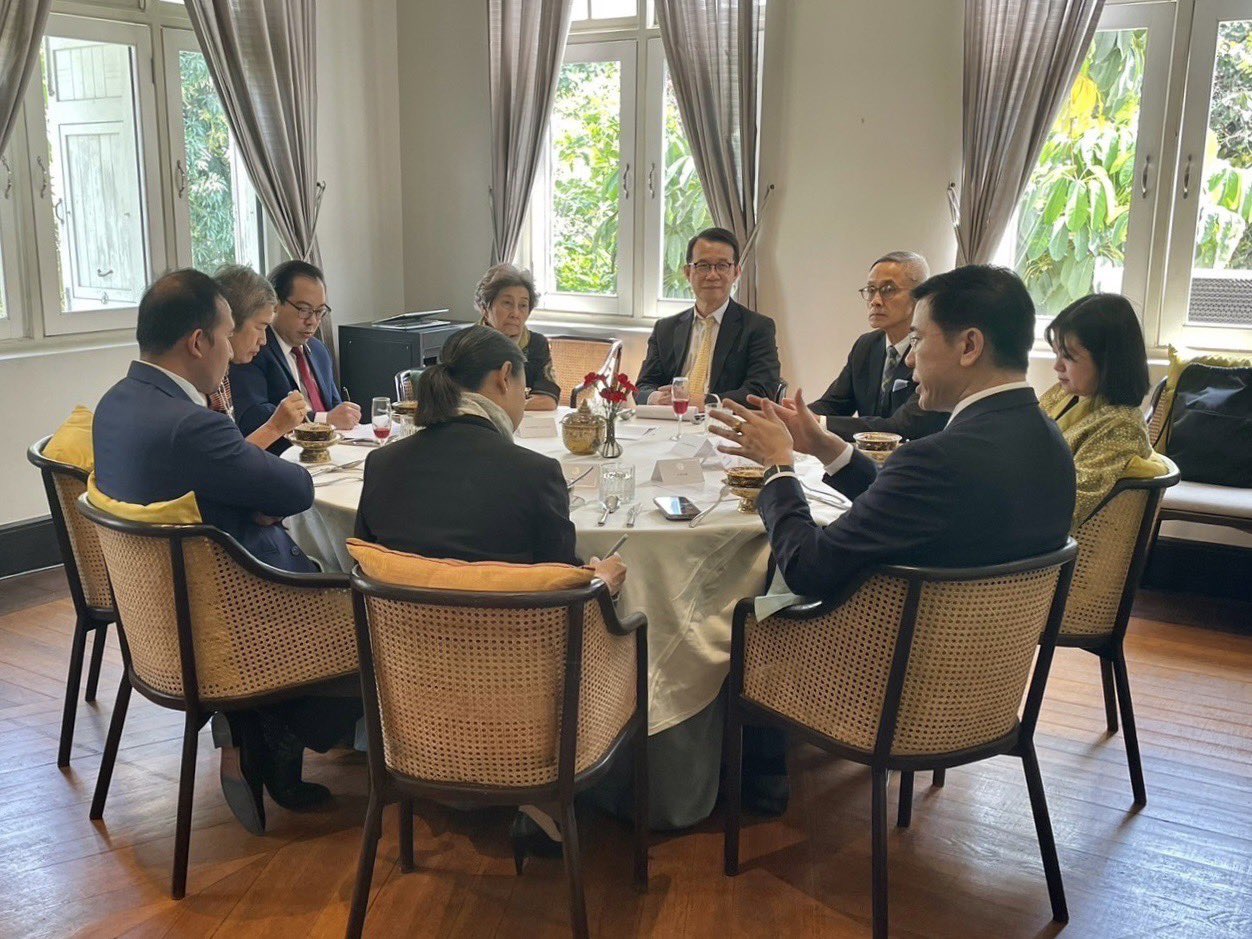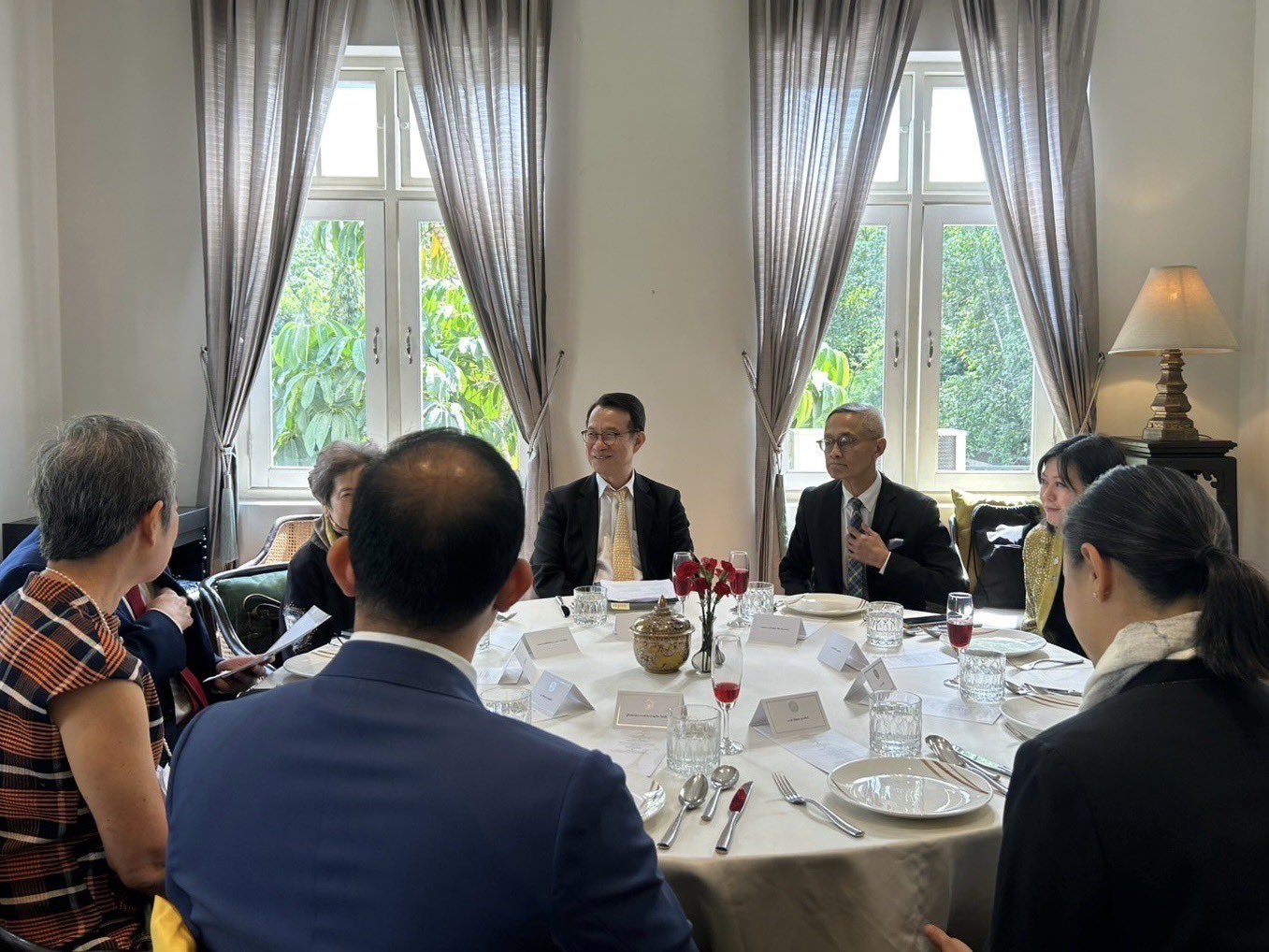รองปลัดกระทรวงการต่างประเทศ เป็นเจ้าภาพหารือในระหว่างอาหารกลางวันกับผู้ทรงคุณวุฒิด้านสิทธิมนุษยชน
รองปลัดกระทรวงการต่างประเทศ เป็นเจ้าภาพหารือในระหว่างอาหารกลางวันกับผู้ทรงคุณวุฒิด้านสิทธิมนุษยชน
วันที่นำเข้าข้อมูล 3 ก.พ. 2568
วันที่ปรับปรุงข้อมูล 3 ก.พ. 2568
เมื่อวันที่ 29 มกราคม 2568 นายไพศาล หรูพาณิชย์กิจ รองปลัดกระทรวงการต่างประเทศ เป็นเจ้าภาพการหารือในระหว่างอาหารกลางวัน (Working Lunch) กับผู้ทรงคุณวุฒิด้านสิทธิมนุษยชน ได้แก่ ศาสตราจารย์กิตติคุณ ดร. อมรา พงศาพิชญ์ ศาสตราจารย์กิตติคุณ วิทิต มันตาภรณ์ ดร. ศรีประภา เพชรมีศรี ดร. เสรี นนทสูติ และ ผศ.ดร. ภาณุภัทร จิตเที่ยง โดยมีนายพืชภพ มงคลนาวิน รองอธิบดีกรมองค์การระหว่างประเทศ น.ส. จิตวิภา เบญจศีล ผู้อำนวยการกองการสังคม และเจ้าหน้าที่กรมองค์การระหว่างประเทศเข้าร่วม
ผู้เข้าร่วมได้แลกเปลี่ยนมุมมองและหารือในประเด็นสิทธิมนุษยชนในเวทีระหว่างประเทศ และบทบาทของไทย ที่ได้เข้าไปเริ่มทำหน้าที่สมาชิกคณะมนตรีสิทธิมนุษยชนแห่งสหประชาชาติ (United Nations Human Rights Council: UNHRC) วาระปี ค.ศ. 2025-2027 ในการผลักดันและขับเคลื่อนวาระด้านสิทธิมนุษยชน รวมถึงรับมือกับความท้าทายใหม่ที่เชื่อมโยงกับสิทธิมนุษยชนและเสริมสร้างความเข้มแข็งของกลไกสิทธิมนุษยชนระหว่างประเทศทั้งในภูมิภาคและภายใต้คณะมนตรีสิทธิมนุษยชนแห่งสหประชาชาติ


On 29 January 2025, Mr. Paisan Rupanichkij, Deputy Permanent Secretary for Foreign Affairs, hosted a working lunch for human rights experts; namely, Emeritus Professor Dr. Amara Pongsapich, Emeritus Professor Vitit Muntarbhorn, Dr. Sriprapha Petcharamesree, Dr. Seree Nonthasoot, and Assistant Professor Dr. Bhanubhatra Jittiang. The working lunch was also attended by Mr. Phuchphop Mongkolnavin, Deputy Director-General of the Department of International Organizations, Ms. Jitvipa Benjasil, Director of Social Division, and officers from the Department of International Organizations.
Participants exchanged views on human rights in multilateral fora, Thailand’s roles and contributions as a new member of the United Nations Human Rights Council for the term 2025-2027, ways forward to address emerging challenges affecting human rights, and how to further strengthen human rights mechanisms at the regional level and at the Human Rights Council.
Tag
Department of International Organizations
วันทำการ : จันทร์ - ศุกร์ เวลา 08.30 - 16.30 น.
(ยกเว้นวันหยุดนักขัตฤกษ์)